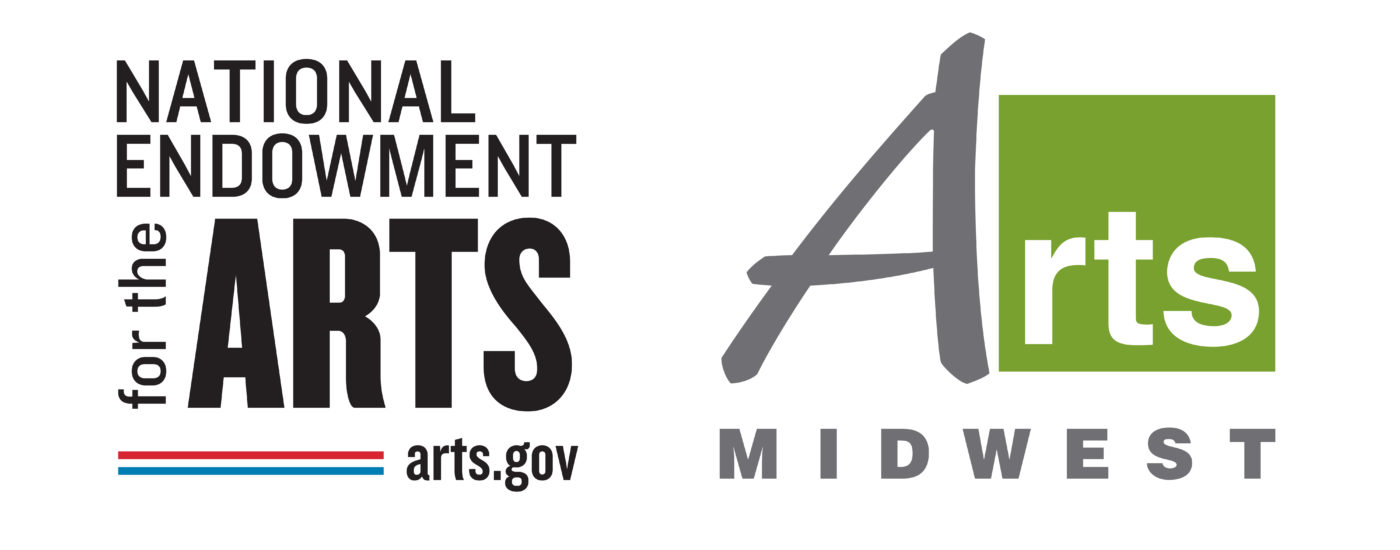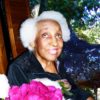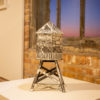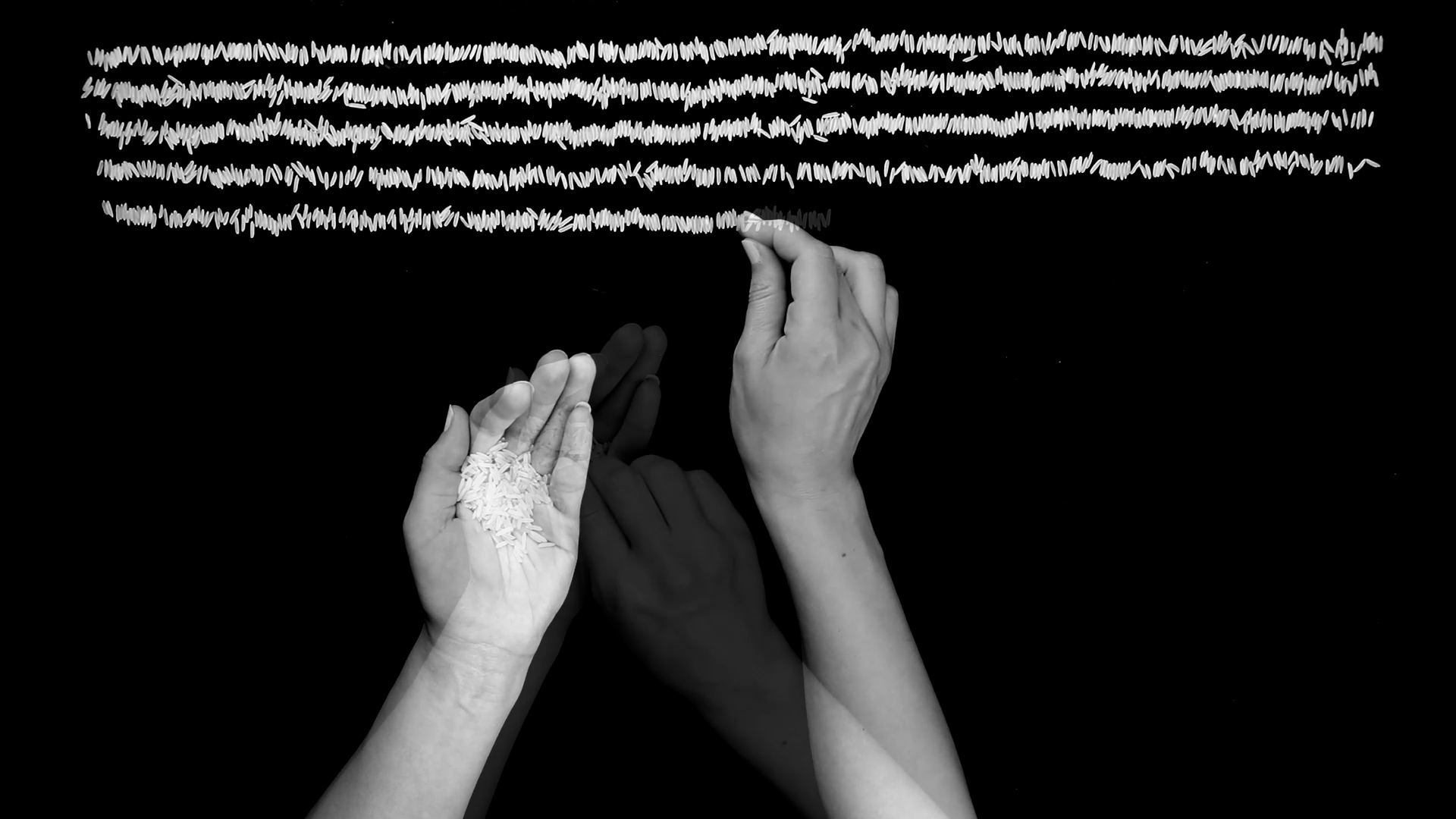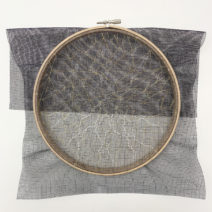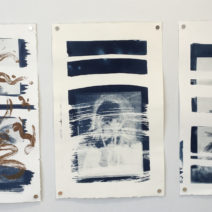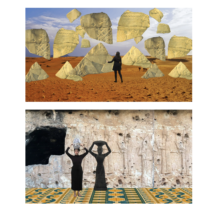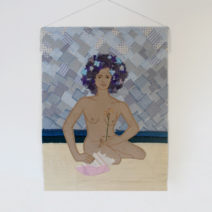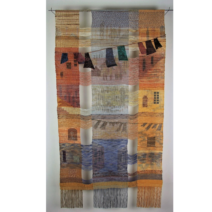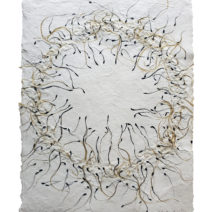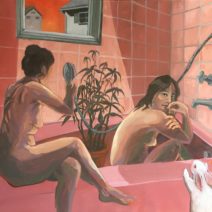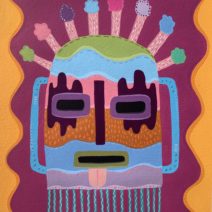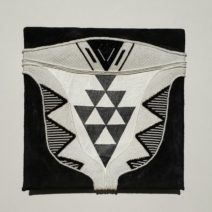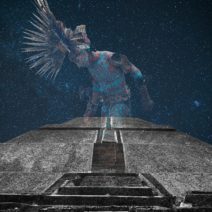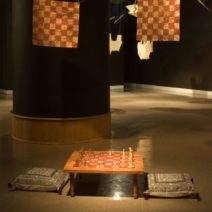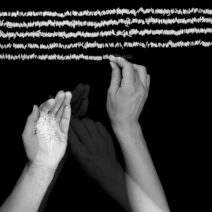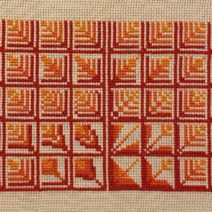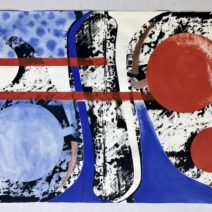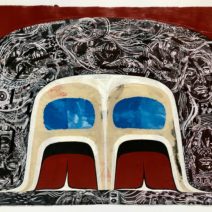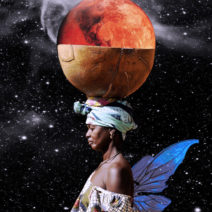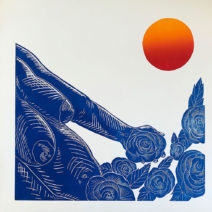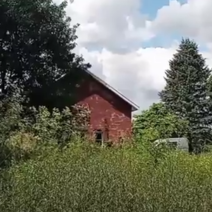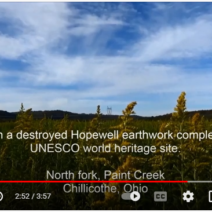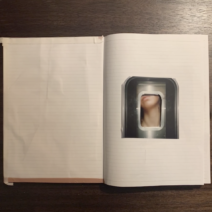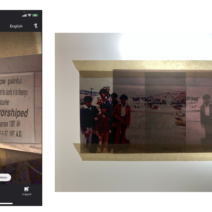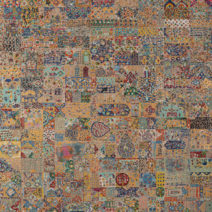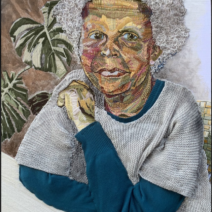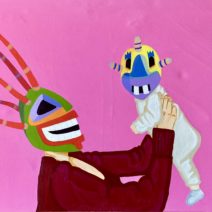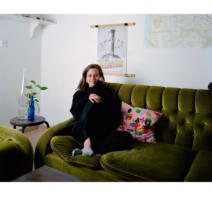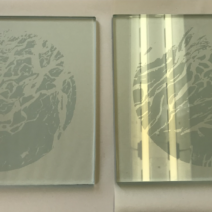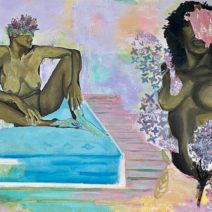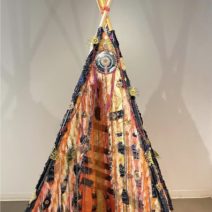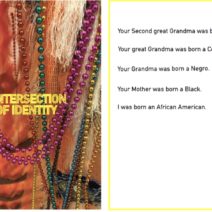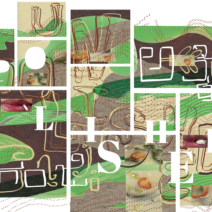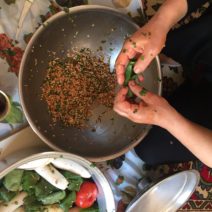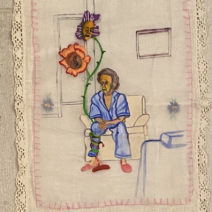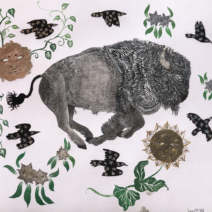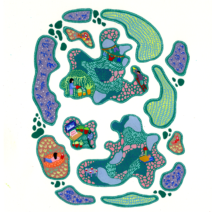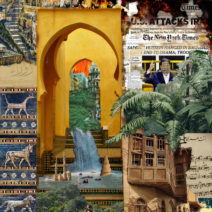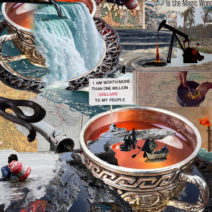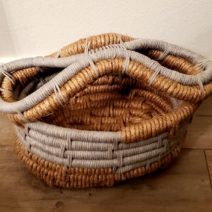Woman Made Gallery is excited to welcome The Deeply Rooted juried by Sundus Abdul Hadi. This group exhibition applies the term “the deeply rooted” as a counter to “marginalization” and features artworks by 33 artists that center ancient culture steeped in traditional and Indigenous knowledge that colonization attempted to erase.
“what didn’t you do to bury me
but you forgot that I was a seed”
– Dinos Christianopoulos
In her juror statement, Sundus Abdul Hadi writes, “’The Deeply-Rooted’ is a term I coined to describe any person or community rooted in an ancient culture steeped in traditional and Indigenous knowledge that colonization attempted to erase. It is an empowered word that attempts to describe the multiplicity of ethnicities and experiences related to the international Indigenous, Black, Pan-African, Afro-descendent, Arab, Brown, Latinx, South American, and Asian communities.
The exhibit features the work of 33 deeply-rooted women and non-binary artists from diverse communities who intimately reflect on their connection to land, ancestry, bodies. These three spaces, liminal, physical and metaphorical, have been too long burdened by the weight of colonialism, plowing through generations of wisdom and knowledge that, despite the attempt at erasure, have returned to the surface bearing fruit.
Colonial histories causing uprootedness, cultural erasure, or minimizing our urge to lay down roots for fear of unbelongingness, the works in this exhibit affirm boundless imagination in the reclaiming of what many assume to be lost, buried, or burdened. What was left behind or forcefully taken away can illuminate what is still within us, what we continue to carry… both as burdens and weight, and as wisdom and light. Perhaps without the heavy load, the lightness of being would never be sought out. Or without the struggle, the relief wouldn’t be as sweet.
Each work speaks to a different note of the journey of the roots, from the deep, dark underworld, to the moment of inspiration that pierces through, creating light and nourishment for our eyes and hearts. Perhaps, if we put our ears to the ground along that uneven path, we can hear a different version of our history, and bring it forth – for if not for art and its decolonial lens, then we’d only have the official versions of what we’ve been taught we are capable of.
From the seed, to the drop of water, to the grain of rice, the needle and the thread, the weave, the brushstroke, the dream, the constellation, the pixel; each work selected in “The Deeply Rooted” is ancestral knowledge manifested.”
– Sundus Abdul Hadi – Tio:tia’ke / Montreal – March 2022
Exhibiting Artists:
asmaa al-issa, Norah Alkharashi, Alexandra Beaumont, Elia diane Fushi Bekene, Boisali Biswas, Michele Brody, Carina Chang, Emilia Chang, Pritika Chowdhry, Mona Cliff, Ivonne Cruz, Reem Farah, Mona Gazala, Silvia Inés Gonzalez, Jenna Hamed, Veronica Hicks, Kiana Honarmand, Mina Katebi, KRFO (Kimberly Renee Fulton Orozco), Saaba Lutzeler, Lorimar Matos, Nadine Nashef. Jean Ni, Marcela Adeze Okeke, Shaqui Reed, Archana Shekara, Laramie Shubber, Nicole Godreau Soria, Tricia Lynn Townes, Daisy Trudell-Mills, Grace Wong, Ayam Yaldo, and Wend Yasen.
About the Juror:
Sundus Abdul Hadi is an artist and writer. Born to Iraqi parents, she was raised and educated in Tiohtià:ke/Montréal, where she earned a BFA in Studio Arts and Art History and a MA in Media Studies. Sundus’ transmedia work is a sensitive reflection on trauma, struggle, and care. She is the author/illustrator of “Shams”, a children’s book about trauma, transformation and healing. Her book titled “Take Care of Your Self: The Art and Cultures of Care and Liberation” (Common Notions, Fall 2020) is about care, curation and community. She is the cofounder of We Are The Medium, an artist collective and culture point.
Abdul Hadi’s work has been exhibited in Palestine, Canada, USA, France, UK and New Zealand. She has been a speaker at Nuqat Kuwait, SADA Iraq, the Nobel Peace Prize Forum, Telfair Museums, the Aga Khan Museum and multiple universities in Turtle Island. For more information visit Sundus Abdul Hadi’s Website.
